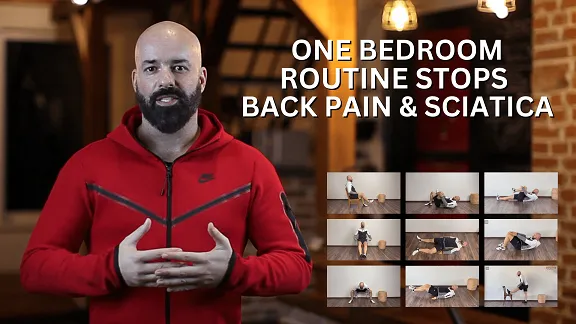Are you looking to establish your identity and make a lasting impression in your industry? If so, then building a strong personal brand is the key. In today’s competitive world, it is essential to stand out from the crowd and showcase your unique skills and expertise. This article will guide you through the steps to create a compelling personal brand that sets you apart and highlights your strengths. By following these strategies, you will gain credibility, attract new opportunities, and position yourself as a thought leader in your field.
Defining Personal Branding
What is personal branding?
Personal branding refers to the process of intentionally and strategically managing and positioning yourself and your unique qualities, skills, and personality to effectively communicate your value to others. It involves developing a consistent and authentic image and reputation that resonates with your target audience, allowing you to stand out from the crowd.
Why is personal branding important?
In today’s competitive professional landscape, personal branding plays a crucial role in differentiating yourself from others and creating a lasting impression. It allows you to establish credibility, build trust, and increase your visibility and influence in your chosen field. Furthermore, a strong personal brand can open doors to new opportunities, whether it be securing job offers, attracting clients, or forming valuable connections.
Identifying Your Unique Brand
Discover your passions and values
The foundation of a strong personal brand starts with understanding your passions and values. Take the time to reflect on what truly drives and energizes you. Identify the activities, subjects, or causes that ignite a fire within you and align with your core values. By determining what you are truly passionate about, you can create a personal brand that genuinely represents who you are and what you stand for.
Define your target audience
Defining your target audience is essential for building a brand that resonates with the right people. Consider who would benefit the most from your expertise or products/services. Think about their demographics, interests, and pain points. By having a clear understanding of your target audience, you can tailor your messaging, content, and overall brand strategy to effectively connect with and meet their needs.
Research your competition
To differentiate yourself and stand out, it is crucial to research and understand your competition. Analyze the personal brands of individuals who are successful in your field and identify what sets them apart. Take note of their unique selling points, strengths, and communication styles. By studying their branding strategies, you can gain insights into what works well in your industry and find creative ways to differentiate yourself.

Crafting Your Brand Story
Creating a compelling narrative
Crafting a compelling brand story involves telling the story of your journey, experiences, and the reasons behind your passion and expertise. It should be authentic, relatable, and engaging. Take the time to reflect on the pivotal moments or challenges that shaped your career or personal growth. By sharing your story, you create a connection with your audience and allow them to see the human side of your brand.
Highlighting your strengths and achievements
One critical aspect of personal branding is showcasing your strengths and achievements. Identify your unique skills, qualities, and experiences that set you apart from others. Highlight your accomplishments and success stories to demonstrate your expertise and credibility. By effectively highlighting your strengths and achievements, you can build trust and inspire confidence in your audience.
Showcasing your personality
A strong personal brand should not only reflect your expertise but also showcase your personality. Incorporate your authentic self into your brand persona. Let your genuine voice and values shine through in your content, interactions, and overall brand image. By showcasing your personality, you create a deeper connection with your audience and attract those who resonate with your values and approach.
Adding a touch of authenticity
Authenticity is a fundamental pillar of personal branding. It involves being true to yourself and your values, consistently representing your brand image, and being transparent with your audience. Avoid the temptation to portray an image that is not aligned with who you truly are. Embrace your unique qualities, strengths, and flaws, as they contribute to your authenticity. By staying true to yourself, you build trust and foster long-lasting relationships with your audience.
Building an Online Presence
Creating a personal website or blog
Building an online presence starts with creating a personal website or blog. This serves as your digital home where you can showcase your expertise, share valuable content, and provide information about yourself and your services. Your website should have a clean and professional design, easy navigation, and compelling content that reflects your brand. Regularly update your website with fresh content to keep visitors engaged and coming back for more.
Optimizing your social media profiles
Social media platforms offer excellent opportunities for building your personal brand. Optimize your social media profiles to maintain consistency and effectively communicate your brand image. Use professional profile pictures and write compelling bios that reflect your expertise and personality. Tailor your content to each platform and engage with your audience regularly. By utilizing social media effectively, you can expand your reach, connect with like-minded individuals, and showcase your expertise.
Curating consistent and engaging content
Consistently creating and sharing valuable content is vital for building your personal brand online. Develop a content strategy that aligns with your target audience’s needs and interests. Share educational articles, thought leadership pieces, and engaging multimedia content such as videos and infographics. Be consistent in your content creation and distribution to build trust and establish yourself as a go-to resource. Engage with your audience by responding to comments and fostering discussions around your content.
Developing a professional email signature
Your email signature is a valuable opportunity to reinforce your personal brand. Create a professional and visually appealing email signature that includes your name, position, contact information, and links to your website or social media profiles. Consider adding a brief tagline or a call-to-action that reflects your brand values or promotes a specific service or offering. By utilizing an email signature, you create a consistent and professional brand impression in every email you send.
Managing online reviews and testimonials
Online reviews and testimonials can significantly influence your personal brand’s reputation. Monitor and manage reviews and testimonials on various platforms to ensure a positive perception of your brand. Encourage satisfied clients or customers to leave reviews or testimonials by providing outstanding service or products. Promptly respond to negative reviews or feedback and seek to resolve any issues. By actively managing your online reputation, you can build trust and credibility in your industry.

Networking and Relationship Building
Attending industry conferences and events
Networking plays a significant role in building your personal brand. Attend industry conferences, seminars, and events to connect with like-minded individuals, industry leaders, and potential clients or collaborators. Prepare a concise elevator pitch that clearly articulates your personal brand and what you can offer. Be approachable, genuinely interested in others, and follow up with meaningful conversations or connections made.
Joining professional organizations and communities
Joining professional organizations and communities provides numerous opportunities for networking and relationship building. Look for industry-specific associations, online communities, or networking groups that align with your interests and goals. Engage actively in these communities by participating in discussions, providing valuable insights, and helping others. By immersing yourself in relevant communities, you can expand your professional network and access valuable resources and support.
Utilizing online networking platforms
In addition to in-person networking, online networking platforms can help you connect with industry professionals worldwide. Utilize platforms such as LinkedIn, Twitter, or relevant industry-specific platforms to expand your reach and engage with a broader audience. Actively participate in relevant discussions, share valuable content, and connect with thought leaders and decision-makers in your industry. By utilizing online networking platforms effectively, you can establish yourself as a trusted authority and expand your professional network.
Building genuine connections
Networking is not just about collecting business cards but building meaningful and genuine connections. Approach networking with a mindset of building mutually beneficial relationships rather than solely seeking opportunities for yourself. Take the time to understand others’ needs, interests, and goals. Offer assistance, support, or resources when applicable. By focusing on genuine connections, you can build a strong network of individuals who trust and respect your personal brand.
Nurturing relationships over time
Building and maintaining relationships is an ongoing process. Nurturing your relationships requires consistent effort, whether it be through regular check-ins, collaborative projects, or providing value to your connections. Stay engaged with your network by sharing relevant content, congratulating achievements, or offering assistance when needed. By nurturing your relationships over time, you can strengthen your personal brand, gain referrals, and access opportunities that may arise.
Developing Expertise and Authority
Continuously learning and staying up-to-date
Developing expertise and authority in your field requires a commitment to continuous learning. Stay up-to-date with industry trends, best practices, emerging technologies, and relevant news. Read books, attend webinars, listen to podcasts, and engage in professional development opportunities. By continuously expanding your knowledge and skills, you can position yourself as a trusted expert and demonstrate your dedication to staying relevant in your industry.
Sharing knowledge through thought leadership
Thought leadership involves sharing your insights, expertise, and unique perspectives on industry topics. Create and distribute thought-provoking and informative content that provides value to your audience. Write blog posts, publish articles, or contribute to industry publications. Share your knowledge through webinars, podcasts, or speaking engagements. By consistently sharing valuable content, you can establish yourself as a thought leader and gain visibility and credibility in your field.
Publishing articles and books
Publishing articles or books is a powerful way to showcase your expertise and extend your reach. Write articles for industry-specific publications or contribute to notable blogs. Consider writing a book on a subject within your area of expertise. Publishing demonstrates your commitment to your craft and positions you as an authority figure. By becoming a published author, you can elevate your personal brand and attract new opportunities and audiences.
Giving presentations and workshops
Public speaking opportunities provide a platform to share your knowledge and interact with a live audience. Offer to speak at conferences, seminars, or workshops in your industry. Prepare compelling presentations or workshops that deliver valuable insights and actionable advice. Engage with your audience, answer questions, and foster connections. By delivering impactful presentations or workshops, you can solidify your expertise and establish yourself as a respected authority in your field.
Participating in panel discussions and podcasts
Participating in panel discussions or podcasts allows you to engage in meaningful conversations and leverage the platforms of others. Seek opportunities to join panel discussions relevant to your industry or area of expertise. Share your insights, opinions, and experiences alongside other experts. Additionally, consider being a guest on industry-related podcasts. By participating in panel discussions and podcasts, you can expand your reach, network with industry peers, and demonstrate your expertise to a broader audience.

Becoming a Go-To Resource
Providing valuable insights and tips
A key aspect of building a strong personal brand is positioning yourself as a go-to resource. Provide valuable insights, tips, and advice to your target audience through your content and interactions. Offer solutions to common challenges or share innovative ideas. By consistently providing value, you establish yourself as a reliable source of information and position yourself as an invaluable asset to your audience.
Offering exceptional customer service
Customer service is a critical component of your personal brand, especially if you offer products or services. Strive to provide exceptional customer service at every touchpoint, from initial inquiries to post-purchase support. Be responsive, professional, and empathetic in your interactions. Anticipate and address customer concerns promptly and effectively. By offering outstanding customer service, you build trust, foster loyalty, and enhance your personal brand’s reputation.
Being responsive and accessible
Being responsive and accessible is vital for maintaining strong connections with your audience, clients, and collaborators. Respond to inquiries, messages, or comments in a timely and professional manner. Be approachable and open to conversations and collaborations. By being responsive and accessible, you establish trust, demonstrate your commitment to your audience, and foster meaningful connections.
Monitoring industry trends and news
To stay relevant and maintain your position as a go-to resource, monitor industry trends and news regularly. Stay updated on new developments, emerging technologies, or changes in your field. Engage with thought leaders or industry influencers to gain insights and perspectives. By being well-informed, you can deliver timely and relevant content, adapt to industry changes, and position yourself as a trusted source of information.
Engaging in conversations and forums
Engaging in conversations and forums allows you to share your expertise, connect with your audience, and enhance your personal brand. Actively participate in online discussions on platforms such as LinkedIn groups or industry-specific forums. Offer thoughtful insights, answer questions, and provide valuable input. By engaging in conversations and forums, you can build credibility, expand your network, and establish yourself as an authoritative voice within your industry.
Securing Media Coverage
Creating a media kit
A media kit is a valuable tool for showcasing your personal brand to journalists, reporters, and media outlets. Create a well-designed media kit that includes an informative biography, high-resolution photos, key accomplishments, media mentions, and contact information. Make it easily accessible on your website or create a dedicated media section. By having a professional media kit, you increase your chances of getting noticed by the media and securing coverage.
Pitching to journalists and reporters
Pitching yourself to journalists and reporters can help you secure media coverage and increase your visibility. Research journalists or reporters who cover topics aligned with your expertise or industry. Craft personalized pitches that demonstrate your unique insights and value to their audience. Be concise, clear, and compelling in your pitches. By effectively pitching to journalists and reporters, you can increase your chances of being featured in media outlets and reaching a broader audience.
Writing press releases
Press releases are an effective way to announce important news or updates related to your personal brand. Write informative and engaging press releases that highlight key information, such as new product launches, events, or significant achievements. Utilize a professional tone and ensure accuracy and clarity in your writing. Distribute your press releases to relevant media outlets, industry magazines, or online platforms. By writing compelling press releases, you can generate media interest and secure valuable media coverage.
Participating in interviews and podcasts
Participating in interviews or podcasts is an excellent opportunity to showcase your expertise, share your story, and gain exposure. Seek out media outlets, podcasts, or industry influencers who align with your brand and target audience. Be prepared for interviews by researching the interviewer and their audience. Clearly articulate your key messages and provide valuable insights during the interview. By participating in interviews and podcasts, you can reach a broader audience, build credibility, and leverage the influence of others.
Building Trust and Credibility
Maintaining consistency and authenticity
Consistency and authenticity are key elements of building trust and credibility in your personal brand. Consistently portray the same values, messaging, and brand image across all platforms and interactions. Be true to your brand and avoid creating an inconsistent or misleading persona. By maintaining consistency and authenticity, you build trust with your audience and establish a credible reputation.
Delivering on promises and commitments
Building trust requires delivering on promises and commitments. Be reliable and follow through on your word. Set realistic expectations and ensure you can meet them. Deliver high-quality work, products, or services consistently. By consistently delivering on your promises and commitments, you build a reputation for reliability and dependability, increasing trust in your personal brand.
Collecting and sharing testimonials
Testimonials are powerful social proof of your expertise and the value you provide. Collect testimonials from satisfied clients, customers, partners, or collaborators. Share these testimonials on your website, social media profiles, or other marketing materials. Seek permission from the individuals providing testimonials and ensure they align with your target audience. By collecting and sharing testimonials, you can strengthen your personal brand by showcasing the positive experiences of others.
Seeking endorsements from trusted sources
Endorsements from trusted sources can significantly enhance your personal brand’s credibility. Seek endorsements from industry leaders, influencers, or respected individuals or organizations within your field. Connect with these individuals and build genuine relationships before requesting an endorsement. Ensure the endorsements align with your personal brand and values. By seeking endorsements from trusted sources, you can further solidify your industry reputation and gain credibility among your target audience.
Evolving Your Personal Brand
Reassessing and refining your brand regularly
Building a personal brand is an ongoing process that requires regular reassessment and refinement. Periodically reassess your personal brand to ensure it aligns with your evolving goals, values, and expertise. Reflect on feedback received from your audience, clients, or collaborators and make necessary adjustments. Continuously refine your brand strategy to stay relevant and maintain a strong brand image.
Adapting to changes in your industry
Adapting to changes in your industry is crucial for remaining competitive and maintaining a strong personal brand. Stay informed about emerging trends, advancements, or shifts within your field. Be open to learning new skills or evolving your expertise to meet changing demands. Proactively adapt and embrace innovative approaches when necessary. By adapting to changes in your industry, you can position yourself as a forward-thinking and adaptable professional.
Staying agile and open to new opportunities
To build a strong personal brand, it is essential to stay agile and open to new opportunities. Be open-minded and willing to explore different paths or collaborations that align with your brand values. Embrace new technologies or platforms that can enhance your reach and impact. Take calculated risks and step out of your comfort zone when appropriate. By staying agile and open to new opportunities, you can continuously expand your personal brand and uncover new avenues for growth.
Elevating your brand through collaborations
Collaborations with like-minded individuals, brands, or organizations can elevate your personal brand and open doors to new opportunities. Seek out partnerships or collaborations that align with your brand values and complement your expertise. Share resources, cross-promote each other’s work, or collaborate on projects or events. By leveraging collaborations, you can tap into new networks, increase your reach, and enhance your personal brand’s visibility and impact.
Building a strong personal brand requires intention, authenticity, and consistent effort. By following these steps, you can create a brand that resonates with your target audience, establishes you as an authority in your industry, and opens doors to new opportunities. Remember to continually assess and refine your personal brand, adapt to industry changes, and embrace collaborations that elevate your brand. With dedication and a clear strategic approach, you can build a personal brand that stands out in the professional landscape.







